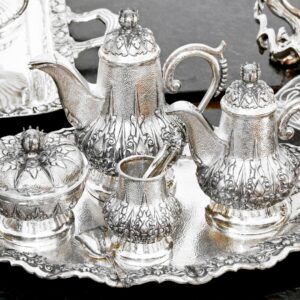Bullion
Bullion refers to a physical form of a precious metal that is valued based on its metal content and purity. It is often traded as a commodity and used for investment purposes, jewelry making, or industrial applications.
Bullions can come in the form of bars, coins, or ingots, and are typically made of gold, silver, platinum, or palladium. The weight and purity of bullions are essential in determining their value. The weight is typically measured in troy ounces, a unit of measure commonly used in the precious metals industry. A troy ounce is equivalent to 31.1035 grams, and it is slightly heavier than a regular ounce.
The purity of a bullion is measured in fineness, which is expressed as a decimal or percentage. A pure metal has a fineness of 1.000, and anything below that has other metals mixed in, such as copper or nickel. For example, a gold bullion with a fineness of .999 means that it is 99.9% pure gold, with only a small amount of other metals mixed in.
Bullions are highly valued due to their intrinsic worth, scarcity, and demand. Many people invest in bullions as a hedge against inflation, economic instability, or currency fluctuations. The price of a bullion is determined by the current market value of the metal it is made of, and it is subject to supply and demand dynamics.
In addition to investment purposes, bullions are also used in the jewelry industry. High-quality bullions are used to make high-end jewelry and watches due to their high purity and durability. The manufacturing process involves melting the bullion and then shaping it into the desired form.
Bullions can also be used for industrial applications, such as electronics, dentistry, and medicine. The high conductivity and corrosion resistance of some precious metals make them ideal for use in these industries. For example, a silver bullion is often used in electronics because of its excellent conductivity.
Bullions can be purchased from various sources, such as banks, precious metals dealers, or online marketplaces. It is important to ensure that the bullion is authentic and has the proper weight and purity. Bullions can be stored in secure vaults or safety deposit boxes to protect them from theft or damage. A common regulator for the precious metals bullion industry is LBMA (London Bullion Metal Association), which supervises trade and regulation, and has become a trademark on some bullions packages.









